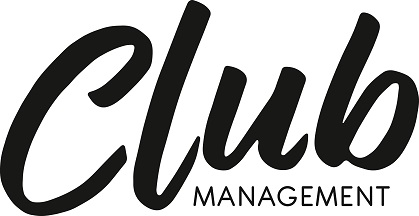By Andrew Lewis, CEO of Allara Global
Allara Global is the official training partner of Food & Beverage Media. Learn more about Allara’s best-in-class training for hospitality professionals here.
The cost-of-living crisis is squeezing consumer wallets, leading to fewer nights out and more cautious spending, resulting in a challenging economic climate for our industry. The need to prioritise hospitality revenue management is stronger than ever before.
One of the challenges of operating in an industry that can be as unpredictable as it is rewarding is to harness the data available and use it to understand your customers and the market. Effective revenue management helps businesses better predict customer behaviours and preferences and proactively tailor services and prices to maximise customer satisfaction and revenue. It’s about optimising every aspect of your business, from pricing, to inventory, to distribution channels, and in doing so benefiting from increased profitability, improved efficiency, and enhanced guest satisfaction.
By making small changes to products, services, costs, and prices, you can create significant improvements, so your business is well-positioned to thrive in the years to come. As guest preferences and market conditions can shift rapidly, revenue management is not a one-time fix but an ongoing process of continuous improvement. This involves making incremental adjustments, for example, launching new promotional offers or changing the layout of a restaurant, testing their impact, analysing the results, and remaining agile enough to adapt strategies as needed. It’s about fostering a culture of experimentation and learning, where each small change is an opportunity to gain valuable insights and refine your approach to revenue optimisation.
At the heart of revenue management lies the power of data. With the increasing use of AI, most modern solutions are rapidly improving their ability to process large amounts of data and the likely impacts of socioeconomic factors such as events, the weather and what’s in the news, to better understand booking patterns and demand and the implications for staffing requirements.
I was recently talking with Ivan Brewer, founder and managing director of Peiso, who was saying he doesn’t believe that we are in a financial crisis, but a business model crisis. He stated: “Revenue Management is crucial for reframing a venue’s operational goals to align with its unique circumstances. It helps venues understand key elements that allow them to leverage their value and skills to redefine profit opportunities through a supportive business model.”
This all stems down to using accurate and reliable data to gain actionable business insights that help you to optimise your table turnover, menu pricing or set hotel rates.
But revenue management isn’t just about algorithms and software. It’s also about empowering your team. It’s about giving your staff the tools and knowledge they need to make smart decisions that drive revenue. It’s about creating a mindset of data-driven decision-making, where everyone understands the importance of maximising profitability and uses it to either improve upselling or provide a more personalised guest experience that will ultimately impact your bottom line.
Unfortunately, we find that in hospitality, this skill set is often lacking. As Melissa Kalan, CEO of the Australian Revenue Management Association (ARMA), aptly puts it, “Revenue management is an essential business discipline that significantly enhances the bottom line. Regrettably, skill development in this area is frequently neglected within the hospitality and tourism sectors.”. We know there are emerging leaders within the industry, keen to upskill and develop their career in Revenue Management, but there has been a clear gap in recognised, accredited training.
To address the gap in education within the hospitality and tourism sectors, ARMA in partnership with Allara Learning, announced the launch of a new nationally accredited course in Revenue and Yield Management Fundamentals. This critical program addresses a skills gap in the hospitality and tourism industry, equipping professionals with the knowledge and expertise needed to optimise revenue streams and drive significant financial growth for their businesses.
Melissa Kalan from ARMA said: “We are proud to be providing a clear pathway for professionals in hospitality and tourism to acquire vital skills and competencies. This course not only contributes to improved revenue and profit performance but also supports employers in fulfilling their training and development obligations. It also plays a crucial role in annual succession planning by offering recognised and accredited training.”
In conclusion, our industry, so essential to the Australian way of life, has proven itself time and again as both resilient and innovative. In this new era of hospitality, those who cling to outdated practices will be left behind. The future belongs to those who embrace innovation, who harness the power of data, and who empower their teams to deliver exceptional guest experiences. Revenue management is not just a strategy; it’s a mindset. It’s a commitment to continuous improvement, adapting to change, and always striving for excellence.
If you want to learn more about the Revenue and Yield Management Fundamentals Course, click here and we will get in touch.
Learn more about Allara’s best-in-class training for hospitality professionals here.


Very interesting